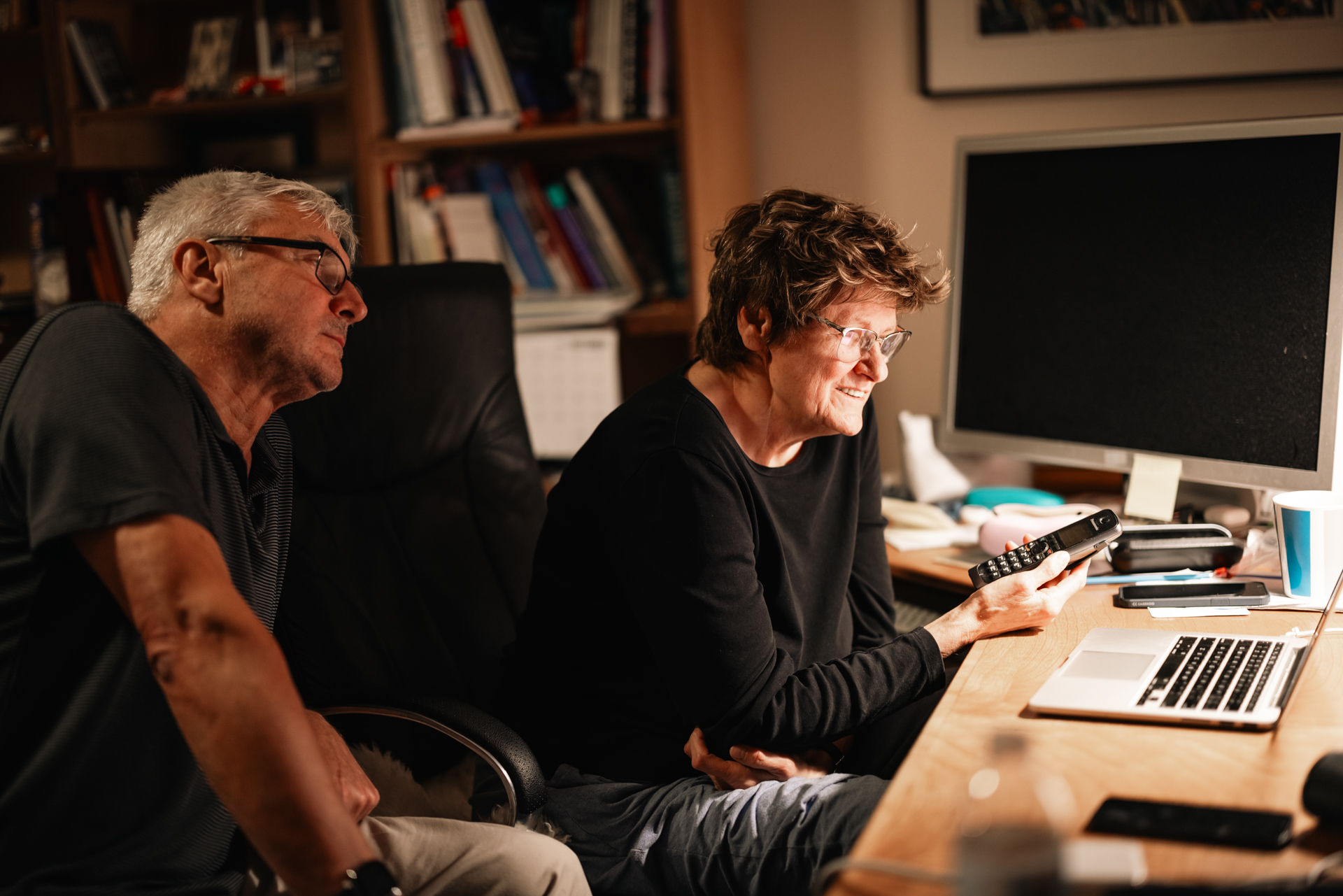
As the inventor of the modified messenger RNA used in modern vaccines (Covid19), Katalin Karikó was awarded the Nobel Prize in Physiology or Medicine together with Drew Weissman, her fellow American research colleague, on the 2nd of October 2023. The announcement of the Nobel Prize winner, Katalin Karikó, one of the most influential scientists of our time is a source of pride for her alma mater, the University of Szeged community.
Our correspondents report:
The phone rang at the home of Katalin Karikó on Monday, October 2, 2023, at dawn. It was 9:50 a.m. in Stockholm and 3:50 a.m. in Philadelphia under a moonlit and starry sky.
"Hello, this is Thomas Perlmann, from the Nobel Committee," began the introduction. "This is Béla Francia", came the reply. "Sorry to bother you so early, but I'm looking for Katalin Karikó. Are you in contact with her?" - the dialogue continued. "Yes. I'm her husband!" "Please put Katalin on the phone." - came the request.
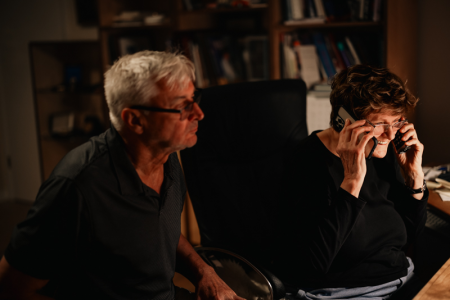
Photo by István Sahin-Tóth
"Hello, Katalin Kariko?" - greeted the Nobel Committee member. The voice of Thomas Perlmann, Professor of Molecular Developmental Biology at the Karolinska Institute, bridged the 6446 kilometres between Philadelphia and Stockholm. He briefly announced the decision of the Nobel Assembly of the Karolinska Institutet in Sweden: the 2023 Nobel Prize in Physiology or Medicine will be awarded to Katalin Karikó and Drew Weissman. He presented the official one-sentence justification. Katalin Karikó clarified the text a little, as no one knows more about mRNA modification than she does and then they agreed on the final sentence. Then they started talking. "I don't usually talk this much, but this is an extraordinary situation. Congratulations on the Nobel Prize!" - concluded Thomas Perlmann the conversation.
"Thank you," said a touched Katalin Karikó, who received the phone call at dawn in Philadelphia. In her study, a glass cabinet displaying her awards, a bed still unmade, fresh coffee brought by her husband, Béla Francia.
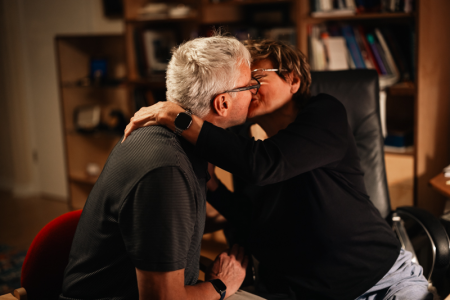
Photo by István Sahin-Tóth
Alfred Nobel's will has been fulfilled: this year, the Nobel Prize in Life Sciences will be awarded to "the person who has made the most important discovery in the field of physiology or medicine".
The next phone also came from Stockholm. Adam Schmidt, Chief Scientific Officer of the Nobel Foundation's media company, conducted the first interview with Katalin Karikó, who had only just heard the news of the Nobel Prize. The Nobel Prize-winning mRNA researcher described the twists and turns of her life. She fondly remembered her parents, who raised her in a family atmosphere and taught her the value of work. She emphasized that she had consciously applied to the University of Szeged to study biology and had participated in the talent program. She recalled: “As a student I was able to participate in research at the newly established Biological Research Centre (BRC)”. She explained that the difficulties in her life were overcome by reading János Selye's book on stress research. She continued to focus on what she could change. This attitude led her to turn negative stress into positive stress.
The first to congratulate Katalin Karikó was her husband, Béla Francia, a partner who stands by his wife in all her difficulties and joys. Then “the news still confidential” was shared with her family members. A video call connected Katalin Karikó to her sister who lives in Budapest.
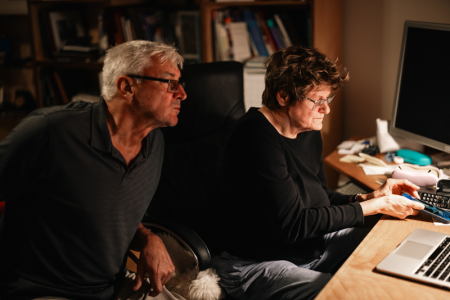
Katalin Karikó with her husband, Béla Francia . Photo by István Sahin-Tóth
Over the past two and a half years, Katalin Karikó had received more than a hundred awards. She adopted to receiving news of being awarded, but the Nobel Prize cannot be compared to anything else. One could see Katalin Karikó became emotional.
Her first phone call was to Drew Weissman, a fellow American researcher, to let him know that his phone was going to ring soon and that the Karolinska Institute would announce they are awarded the 2023 Nobel Prize in Physiology or Medicine jointly.
The announcement of the Nobel Committee on the Karolinska Institutet website was viewed by more than 13,000 people in the first minutes, with messages of congratulations pouring in.
With a phone in one hand, she received the congratulations while also trying to listen to the reasons given by the Nobel Committee's for the award.
In the meantime, the requests for interviews were also received: while Katalin Karikó spoke on one phone, her husband was on the other.
With her husband, Béla Francia, by her side she watched the broadcast of the announcement that Nobel Assembly has today awarded the 2023 Nobel Prize in Physiology or Medicine jointly to Katalin Karikó and Drew Weissman.
As it was announced, Katalin Karikó was born in Szolnok, grew up in Kisújszállás, graduated in biology from the University of Szeged, and received her PhD in biochemistry in 1982. She started her research at the Biological Research Centre, at her first place of work, in Szeged.
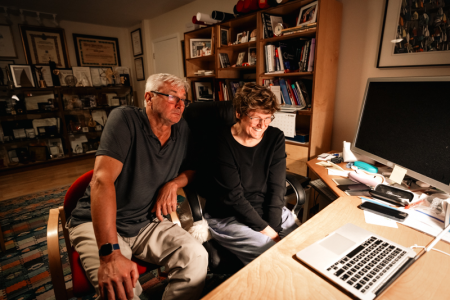
Photo by István Sahin-Tóth
In 1985, she left for the United States with her husband and their daughter on a work permit. She arrived at the University of Pennsylvania in 1989, where she worked as a researcher and lecturer for 24 years.
She founded a company and was CEO of RNARx from 2006 to 2013. From 2013 to 2022, she was Senior Vice President at BioNTech in Germany, where she led research into the therapeutic application of modified mRNA.
Dr. Katalin Karikó has been working on RNA-mediated mechanisms for four decades: she wanted to develop the mRNA, transcribed under laboratory condition, suitable for protein therapy. Together with immunologist Dr. Drew Weissman, she discovered that the inflammatory effect of RNA is suppressed by nucleoside modifications. This pioneering work, the two researchers' patents on nucleoside-modified uridines of mRNA, paved the way for the therapeutic use of mRNA - for example, in the treatment of cancer, as well as autoimmune, infectious and genetic diseases.
It was the development of mRNA-based vaccines, which played a key role in containing the Covid-19 pandemic, that brought the world's attention to the importance of Dr. Katalin Karikó's discoveries on messenger RNA. She has been elected to a member of 6 academies of science for her pioneering achievements, which have led to breakthroughs in medical technology; she has been awarded honorary doctorates by 16 universities; has received more than 70 scientific awards and numerous social honours. These award ceremonies have been transformed into a new forum for the promotion of science by Dr. Katalin Karikó, Professor at the University of Szeged, Adjunct Professor at the University of Pennsylvania, one of the world's best known and most influential living scientists.
The news from Stockholm was heard at a Nobel Prize waiting event at Katalin Karikó's alma mater, the University of Szeged. The press conference at the University of Pennsylvania, the discoverer's last American workplace, will start at around 5:30 pm CET. The press conference will be streamed live on the University of Szeged Facebook page.
Here, the two researchers, Katalin Karikó and Drew Weissman, will meet and answer journalists' questions. Since their memorable, first conversation at a photocopier at the University of Pennsylvania in 1997, they have come a long way. 2005 is also a memorable year, because their groundbreaking publication has gone unacknowledged. But the work continued. They developed a delivery technique for injecting mRNA into fat droplets called lipid nanoparticles. This ensured that the mRNA reached the right part of the body and triggered the immune system to fight the disease. In 2012, the synthetic mRNA was successfully introduced into bodies in animal experiments.
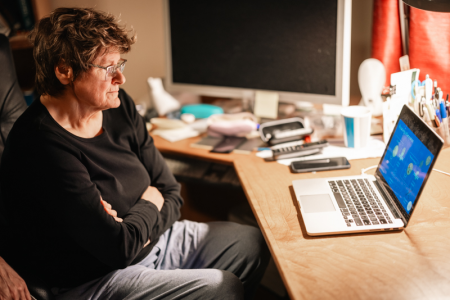
Photo by István Sahin-Tóth
Katalin Karikó has received awards without her American research partner too, from Hungary through the United States to Europe and Asia. The list of honours she has received joinly with others, Drew Weissman’s name is the most frequent recipient – in almost forty cases. The four most notable of the joint Kariko-Weissman awards so far are the Lasker-DeBakey Clinical Medical Research Award, also known as the American Nobel Prize; the Breakthrough Prize in Life Sciences, also known as the Oscar of Silicon Valley; the Princess of Asturias Award, known as the "Spanish Nobel Prize"; and the Japan Prize.
In addition to the president of the board of trustees of Foundation for the University of Szeged Prof. Dr. Gábor Szabó, Prof. Dr. László Rovó, the Rector of the University of Szeged and among Vice-Rectors, Prof. Dr. Márta Széll and Prof. Dr. Klára Gellén and Chancellor Dr. Judit Fendler, as well as several directors, professors and university citizens watched the live announcement of the Karolinska Institute on the projector.
As if half the world had been waiting for this announcement, congratulations flooded Katalin Karikó's social media "message boards", and her email account.
By winning the Nobel Prize in Physiology and Medicine, which was first awarded 122 years ago, the professor from Szeged and Philadelphia follows in the footsteps of predecessors such as Emil von Behring, who was awarded the Nobel Prize for his work on serum therapy.
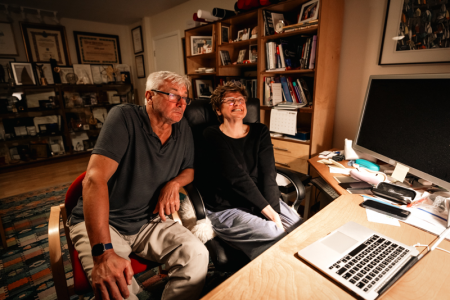
Photo by István Sahin-Tóth
Previous winners include scientists such as Severo Ochoa and Arthur Kornberg who were honoured for their work on the synthesis of RNA and DNA (1959), François Jacob, André Lwoff and Jacques Monod, who discovered the control of message transmitting RNA, ribosomes and individual genes. The immunologist Drew Weissman can look to the duo of Ilya Ilyich Mechnikov and Paul Ehrlich, who won the Nobel Prize for the study of the immune system (1908); and Jules Hoffmann and Bruce Beutler duo, who were recognised for their research into the natural or innate immune system (2011) and whom will be visiting the University of Szeged to give a lecture.
Hungary or "Hungary/USA" in Wikipedia's Nobel Prize dictionary is so far listed with three years. In 1914, Róbert Bárány was awarded the Nobel Prize in Physiology and Medicine for his work on the physiology and pathology of the vestibular organs of the inner ear; in 1937, Albert Szent-Györgyi, professor at the University of Szeged, was awarded the Nobel Prize in Physics and Medicine for his "discoveries in the field of biological combustion processes, in particular the role of vitamin C and fumaric acid catalysis", while in 1961, György Békésy was awarded the Nobel Prize in Physiology and Medicine for his discoveries on the physical mechanism of the inner ear, the excitation of the cochlea.
Of the 113 Nobel Prizes in this category to be awarded until 2022, 30 per cent was shared between two scientists and 35 per cent between three. Of the winners in physiology and medicine, Katalin Kariko is the 13th woman.
The University of Szeged community is proud to be a part of the celebration of Katalin Karikó's Nobel Prize, following Albert Szent-Györgyi’s 86 years ago.
Ilona Újszászi
Photos by István Sahin-Tóth
More information about Katalin Karikó, research professor at the University of Szeged, is available on the SZTE website and the website of the SZTE Klebelsberg Library.

